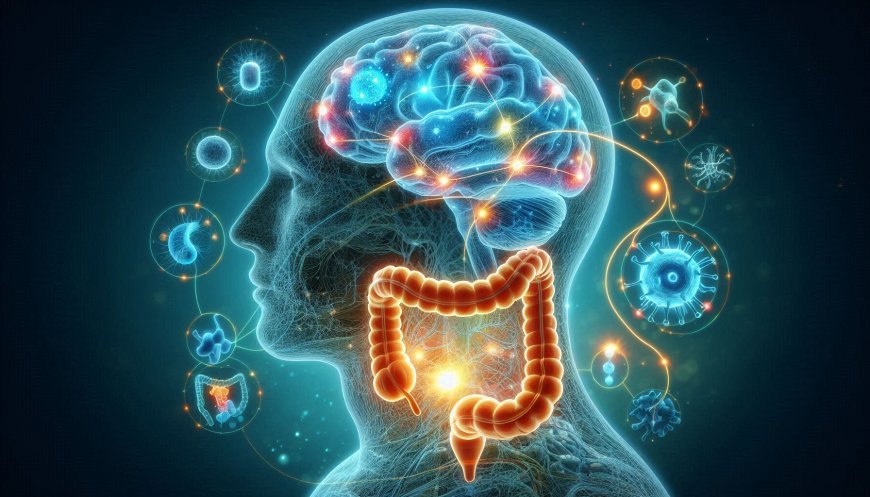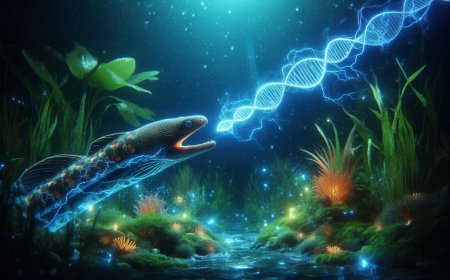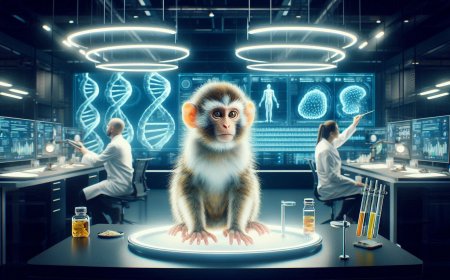The Gut-Brain Connection: How Hunger Hormones Shape Our Decisions
Explore the fascinating gut-brain connection and discover how hunger hormones like leptin and ghrelin influence decision-making and behavior. Understand the science behind how our digestive system communicates with the brain to impact choices and overall health.

For centuries, the relationship between our gut and brain has been a puzzle, a delicate dance between hunger and satisfaction that seems to affect not only our bodies but our minds. Now, thanks to groundbreaking research from University College London (UCL), that connection has been illuminated in a remarkable way. In a recent study published in Neuron, researchers have uncovered how hunger hormones produced in the gut can directly influence the brain’s decision-making areas, fundamentally shaping an animal’s behavior.
The Hidden Dialogue Between Gut and Brain
The UCL research team, led by Dr. Ryan Wee, made an extraordinary discovery while studying the behavior of mice in food-related environments. What they found is a story that starts deep in the gut but unfolds in the brain—specifically, the ventral hippocampus, a region crucial for decision-making and memory.
The experiment was simple yet revealing. Hungry and full mice were placed in environments with food, and scientists closely monitored the activity in their brains. What emerged was a fascinating pattern. When the mice were full, their ventral hippocampus became more active, inhibiting their desire to eat. This brain activity acted almost like a brake, reminding the mice they had enough and steering them away from unnecessary food. But in hungry mice, the situation was very different. The ventral hippocampus was much quieter, lifting the brake and allowing the mice to indulge in food.
The key to this shift? A hunger hormone called ghrelin.
Ghrelin: The Hunger Messenger
Ghrelin, often called the “hunger hormone,” is produced in the gut and rises in the bloodstream when we're hungry. This study revealed that ghrelin doesn't just signal hunger to the stomach; it crosses the blood-brain barrier and directly influences the brain’s decision-making circuits.
By manipulating the ghrelin receptors in the brains of the mice, the researchers could alter the animals' eating behavior. Activating neurons in the ventral hippocampus stopped them from eating, even when they were hungry. On the flip side, removing ghrelin receptors from these neurons disrupted the natural balance, making the mice eat more, even when their bellies were full.
This discovery is groundbreaking, providing the first direct evidence that the gut can communicate with the brain in real-time, influencing decisions that seem entirely cognitive. It suggests that the internal signals our bodies produce play a far greater role in our behaviors than previously thought.
Gut Decisions: More Than Just Hunger
The implications of this research stretch far beyond hunger. The UCL team is now delving deeper into whether hunger hormones like ghrelin can also impact learning, memory, and mental health. If hunger affects how animals make decisions about food, could it also affect how they perform tasks or solve problems? Could it influence emotional regulation or stress responses?
This opens up new avenues for understanding conditions like eating disorders, where the body’s signaling between hunger and satiety is disrupted. Disorders like anorexia or binge-eating could be linked to imbalances in the gut-brain dialogue, where ghrelin and other hormones send faulty signals, skewing decision-making in ways that promote unhealthy behaviors.
A Future of Healthier Minds and Bodies
Dr. Wee and his team are hopeful that these insights can one day lead to new treatments for eating disorders and even mental health conditions linked to diet. By understanding how hunger hormones influence the brain’s decision-making pathways, they believe we might be able to restore balance to those whose signals have gone awry.
In the future, therapies targeting these gut-brain circuits could help regulate eating behaviors, preventing overeating or undereating. Furthermore, this research shines a light on how interconnected our body’s systems truly are, with internal processes like hunger driving external behaviors in ways we are only beginning to understand.
The Gut-Brain Connection: A New Frontier
The UCL study underscores an emerging reality in science: our brains are not isolated in making decisions. The gut—often called the "second brain"—plays an integral role in guiding our choices. Hunger is not just a physical sensation; it is a powerful force that shapes our actions, nudging us toward or away from food, even impacting our cognition.
As scientists continue to unravel this complex dialogue between gut and brain, we stand on the cusp of new treatments and interventions that could profoundly alter our approach to health and behavior. What was once a simple matter of "mind over matter" is now understood to be "gut over mind," and the consequences could be life-changing.
In the intricate dance of survival, our guts may hold more sway over our minds than we ever imagined.
What's Your Reaction?








































































































